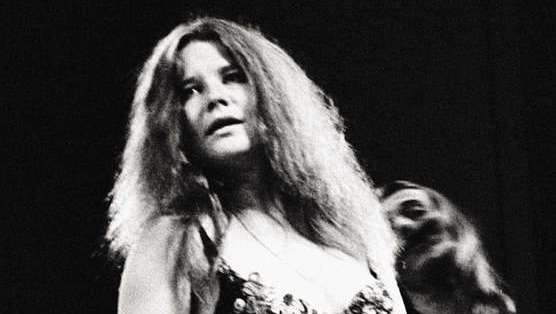On the Road with Janis Joplin by John Byrne Cooke

In 1972, the famous Lester Bangs wrote about Janis Joplin, who had died two years before from a heroin overdose. Bangs took the opportunity to rail against the media and the culture of celebrity in Rolling Stone: “As soon as another Name’s dead, the slick magazines and tabloids alike … indulge in all sorts of disgusting bathetic paeans to the deceased … The composers of the Memorials make sure that we will keep on worshiping exactly that lie which contributed so heavily … to the desperate, self-consumption which killed the Name. They almost never write … about the real, different, scared individual behind the flash and its bluff.”
John Byrne Cooke, who managed Janis Joplin during most of her brief career, may well have read that piece—he actively followed Rolling Stone’s writing on Joplin when he was working with her. Many years later, we get On the Road with Janis Joplin, which attempts to get at some of the meat “behind the flash.”
Joplin found fame because of her voice—at times approximating a growling tiger—but she quickly became a potent, extra-musical symbol. Ellen Willis, one of the first great rock critics, described the Joplin effect: “Among American rock performers she was second only to Bob Dylan in importance as a creator/recorder/embodiment of her generation’s history and mythology. She was also the only woman to achieve that kind of stature in what was basically a male club, the only sixties culture hero to make visible and public women’s experience of the quest for individual liberation.”
Cooke picks up with Joplin in 1967 at the Monterey Pop Festival—a good jumping-off point for the Joplin story. Her group, Big Brother and the Holding Company, played twice at the festival, the only band in the whole line-up to do so. “What if Big Brother hadn’t played at Monterey?” our narrator wonders. “They might not have signed a management contract with Albert Grossman [who worked with Dylan, among others] later that year, maybe never … In the immediate aftermath of the festival, it is Janis who gets the most notice, the biggest boost.”
In ‘60s rock memoirs, everyone exists at most three degrees of separation away from everyone else, allowing people like Cooke (also a bluegrass musician) to move between worlds with ease. He ends up as Big Brother’s manager, reporting to Grossman and handling all manner of logistical tasks.
Joplin helped Big Brother get famous; as soon as that happened, she rapidly eclipsed the rest of the band in the media’s eyes. Early in the book: “Big Brother is a democratic band. Everyone is equal.” Soon after: “It [rattled] the band’s confidence when an L.A. rock critic … put his opinion of the band in the headline of his review: ‘Janis Joplin Too Full of Soul for Holding Company Partners.’”
-

-

-

-

-

-

-

-

-

-

-

-

-

-

-

-

-

-

-

-

-

-

-

-

-

-

-

-

-

-

-

-

-

-

-

-

-

-

-

-








































